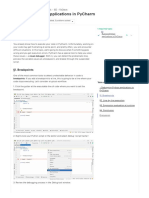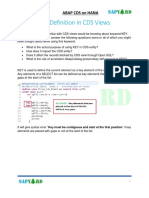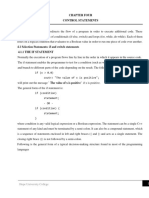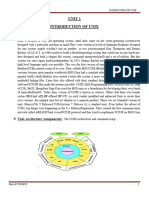0% found this document useful (0 votes)
91 views24 pagesInternship Report
The document is an internship report by Priyanshu Kumar, detailing his experience as an Android Developer intern at Google, fulfilling requirements for a Bachelor of Technology in Artificial Intelligence and Machine Learning. It outlines the objectives, courses undertaken, tools and technologies used, and key learnings from the internship. The report emphasizes the importance of practical application of theoretical knowledge and skill development in the field of Android development.
Uploaded by
dheeraj8757922Copyright
© © All Rights Reserved
We take content rights seriously. If you suspect this is your content, claim it here.
Available Formats
Download as PDF, TXT or read online on Scribd
0% found this document useful (0 votes)
91 views24 pagesInternship Report
The document is an internship report by Priyanshu Kumar, detailing his experience as an Android Developer intern at Google, fulfilling requirements for a Bachelor of Technology in Artificial Intelligence and Machine Learning. It outlines the objectives, courses undertaken, tools and technologies used, and key learnings from the internship. The report emphasizes the importance of practical application of theoretical knowledge and skill development in the field of Android development.
Uploaded by
dheeraj8757922Copyright
© © All Rights Reserved
We take content rights seriously. If you suspect this is your content, claim it here.
Available Formats
Download as PDF, TXT or read online on Scribd
/ 24























































































